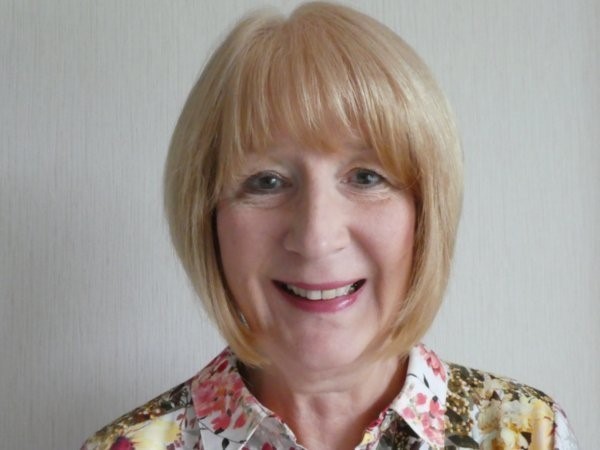After Linda was treated for DCIS, she wanted to give back and help improve services for future patients. She’s now a Patient Advocate with Breast Cancer Now, and continues to learn new things as she works to help others.
After Linda was treated for DCIS, she wanted to give back and help improve services for future patients. She’s now a Patient Advocate with Breast Cancer Now, and continues to learn new things as she works to help others.

I wanted to give something back to the people who helped me
In 2016, I was diagnosed with DCIS. After going through treatment and receiving the good news that there was No Evidence of Disease, I decided I wanted to give something positive back to the hospital and NHS that had treated me. So, I became a Patient Representative with Breast Cancer Now.
Initially, my role involved analysing the outcomes from the Service Pledge surveys and identifying areas for improvement at the hospital which had treated my cancer. Then, I progressed to being a Patient Advocate, looking at the surveys from other hospitals in more detail and identifying viable and cost-effective service improvements.
Later, I had the opportunity to speak to big groups of people about my experience.
In 2019, I was invited to give a presentation about my cancer journey to the students and staff at Bradford University. The University has a large cancer research unit, partially funded by Breast Cancer Now. Then, in March 2020, just before the first Covid lockdown, after lots of preparation and rehearsing, I found myself standing in front of a packed lecture theatre and delivered my story.
I wanted to share my experience with future doctors
I had never really spoken or talked about my cancer to anyone other than to the medics and my immediate family. Yet, there I was, in front of over 100 very clever people who I had never met before, talking about how my life and my sex life(!) had been since my cancer diagnosis. It was such a cathartic experience.
Afterwards, one of the professors gave a tour of the university’s mind-blowing research facilities. That made me even more determined to give as much as I could (either through volunteering or fundraising) to Breast Cancer Now.
So, shortly after, I applied to attend virtual cancer clinics for Guy’s and St Thomas’ Year Three medical students: tomorrow’s doctors.
I attended several clinics via video call, with each session lasting around 40 minutes. One thing I told each of them was to never say to your patient that, ‘So and so had cancer, but they are fine now’. A doctor said that to me at the start of the investigation into the lump in my breast, but life after breast cancer is never just fine.
In helping others, I also ended up helping myself
Shortly after these virtual clinics, Breast Cancer Now contacted me and asked me to share my experience with Year Three pharmacology students at St George’s University Hospital.
I gathered together all the medicines I was taking, and pulled out the patient leaflets from each box. Then I made a note of all the side effects that were common to each drug. It was a light bulb moment for me. Amongst aches, pains and other problems, I was experiencing hair loss. I had never associated this with the meds I was taking, but there it was in black and white.
I had been taking Anastrozole for almost five years at this point. This had raised my cholesterol level, and so statins had been prescribed too. These two drugs each could cause hair thinning. After a specialist dermatologist investigation, which included a biopsy, I was told I am suffering from male pattern hair loss - thanks to the Anastrozole.
I went to see my oncologist in May 2021 to discuss stopping the Anastrozole. The oncologist and I agreed that the benefits of stopping outweighed the risk, so I did. Stopping any medication is something that should be done only with the involvement of the doctors involved in a patient’s treatment.
Life is good and I feel so well
The side effects crept up on me so gradually that I didn’t notice them - I just thought it was an age thing! Had I been more aware perhaps I could have considered an alternative course of treatment. Hindsight is wonderful.
Both my dermatologist and oncologist were incredibly supportive, as was the Breast Cancer Now Helpline. My GP’s practice prescribes the treatment for my hair loss on the NHS due to the cause being cancer treatment-related. My hair loss is still happening and to a much lesser degree, but most important of all, I feel so well!
I am currently a Louder Voice for Breast Cancer Now, and I am really looking forward to seeing what opportunities Breast Cancer Now offer in 2022 and beyond. Life is good!
If, like Linda, you would like to use your experience to help others experiencing breast cancer, we would love to welcome you as part of our Voices network.